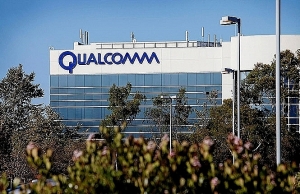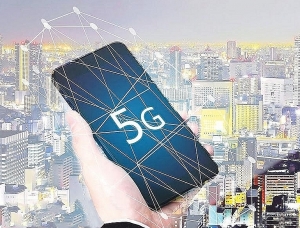Qualcomm ready to scale 5G to consumers in Vietnam
 |
| Nam Thieu, country manager of Qualcomm Vietnam, Laos, and Cambodia |
Vietnam is going to launch 5G commercially. What are Qualcomm’s preparations to cash in on the opportunities?
As the world’s leading wireless technology innovator, we at Qualcomm are committed to driving and scaling 5G to the consumer.
In line with this, we have been supporting Vietnamese businesses from different sectors to enable them to participate in the 5G economy, which could produce up to $12 trillion worth of goods and services across a broad range of industries – from retail to education, transportation to entertainment, and everything in between – by 2035, when 5G’s full economic benefit should be realised across the globe.
For instance, we have been collaborating with local network operators such as Viettel and VNPT to successfully deploy 5G in the country. We supported Viettel in their first 5G trial in Ho Chi Minh City and Hanoi in 2019.
We are also keen to continue and expand our partnerships with local original equipment manufacturers (OEMs), including smartphone manufacturers such as VinSmart and BKAV. In fact, we signed a Patent Licensing Agreement that covers multimode complete terminals with VinSmart in last December. This granted VinSmart a royalty-bearing patent license to develop, manufacture, and sell branded multimode complete terminals such as 5G smartphones.
We have also recently released our Snapdragon 865 5G Mobile Platform, which we envision will help make 5G accessible to billions of smartphone users around the world. Several global OEMs have selected this platform for their 5G device launches this year, and we are ready to make it available for interested Vietnamese OEMs as well.
We also believe that 5G will be the backbone that will power new advancements such as the Internet of Things (IoT). In Vietnam, one of Qualcomm’s IoT partners is Homa Techs Inc., which develops smart home solutions using the company’s latest AI-powered chipsets.
Lastly, we also believe that 5G will go beyond the mobile industry. As such, we are also keen to work and empower companies with our technologies to come up with innovative applications for smart factories, smart cities, or smart manufacturing, among others.
Many technology giants such as Ericsson, Huawei, and Lenovo have joined the race in Vietnam. Have you ran into any challenges?
As with any endeavor, there will always be challenges. However, we are more focused on the opportunities that 5G may present and the benefits it will bring to people. In particular, Qualcomm believes that unlocking 5G will bring about the next generation of technological progress that will transform industries, create jobs, and enrich lives – including here in Vietnam.
In the future, 5G will become a unifying connectivity fabric. Like electricity, you will just expect it to be everywhere. This is the age of a true IoT with billions of connected devices. 5G is also the backbone which will enable the mainstreaming and further development of other disruptive technologies such as AI and VR/AR.
Specifically, for Vietnam, one of the key sectors which can benefit from 5G is manufacturing, which has become one of the country’s growth drivers by growing 12.98 per cent in 2018. With 5G, Vietnam can benefit from the estimated $3.364 billion output which the global manufacturing sector is expected to produce by leveraging the technology. It can help the country keep its position as a lower-cost manufacturing hub in the region. This is also in line with the government’s recently launched “Make in Vietnam” campaign which is envisioned to transform Vietnam into a true “economic dragon” in 2045 by building the digital, sharing, and innovative economies.
In addition, by leveraging 5G capabilities, Vietnam can incorporate IoT innovations on a much larger scale, towards the formation of smart cities where next-gen connectivity power that offers high bandwidth and low latency is combined with big data to provide real-time data analysis for enhanced mobility, safety, and environmental protection.
With our continuously growing work with Vietnamese stakeholders, Qualcomm believes our understanding of the 5G opportunities and challenges will continue to grow and evolve along with the market.
Do you think that Vietnam’s recent policy changes are enough to support the market development?
From our perspective, we believe that the Vietnamese government has taken a very proactive approach in pursuing its Fourth Industrial Revolution and digital transformation goals, which in turn, will support the development of the local technology sector.
The Politburo’s Resolution No.52-NQ/TW, for instance, can help harness the power of digital transformation to further the country’s progress and ensure that Vietnamese industries and consumers are able to benefit from this. It does this by outlining guidelines to align the efforts of different ministries, such as the Ministry of Information and Communication, the Ministry of Science and Technology, and the Ministry of Planning and Investment, and ensure they work together towards the same goal.
Moreover, the MPI has also previously announced the draft of the National Strategy on the Fourth Industrial Revolution by 2030, which will outline an action plan to guide the country in achieving its 4.0 goals.
We at Qualcomm believe that policies like these, along with campaigns such as “Make in Vietnam”, contribute greatly to developing the local technology sector and will help the country achieve its ambition of becoming a regional technology hub.
 | Tech titans line up to seize 5G advantages Next week, the United States-based technology giant Qualcomm, the largest global supplier of smartphone chips, will launch its Hanoi office after over five years of ... |
 | Qualcomm Technologies launches new snapdragon mobile platforms Qualcomm Technologies, Inc. announced on January 21 the launch of three new mobile platforms: the Qualcomm® Snapdragon™ 720G, 662, and 460 to address on-going demand ... |
 | Qualcomm and ZTE achieve 5G landmark with voice over NR call Qualcomm Technologies, Inc., a subsidiary of Qualcomm Incorporated, and ZTE Corporation achieved 5G-enabled Voice over New Radio call last month, marking an industry-leading step in ... |
What the stars mean:
★ Poor ★ ★ Promising ★★★ Good ★★★★ Very good ★★★★★ Exceptional
 Tag:
Tag:
Related Contents
Latest News
More News
- Digital shift reshaping Vietnam’s real estate brokerages (December 31, 2025 | 18:54)
- Allen & Gledhill recognised as Outstanding M&A Advisory Firm (December 18, 2025 | 14:19)
- Inside Lego Manufacturing Vietnam (December 18, 2025 | 11:45)
- The next leap in Cloud AI (December 11, 2025 | 18:19)
- Vietnam’s telecom industry: the next stage of growth (December 11, 2025 | 18:18)
- Five tech predictions for 2026 and beyond: new era of AI (December 11, 2025 | 18:16)
- CONINCO announces new chairman and CEO (December 10, 2025 | 11:00)
- How AWS is powering the next-gen data era (December 09, 2025 | 13:14)
- Outlook in M&A solid for Singapore (December 08, 2025 | 10:31)
- Vietnamese firms are resetting their strategy for global markets (December 05, 2025 | 17:04)

























 Mobile Version
Mobile Version